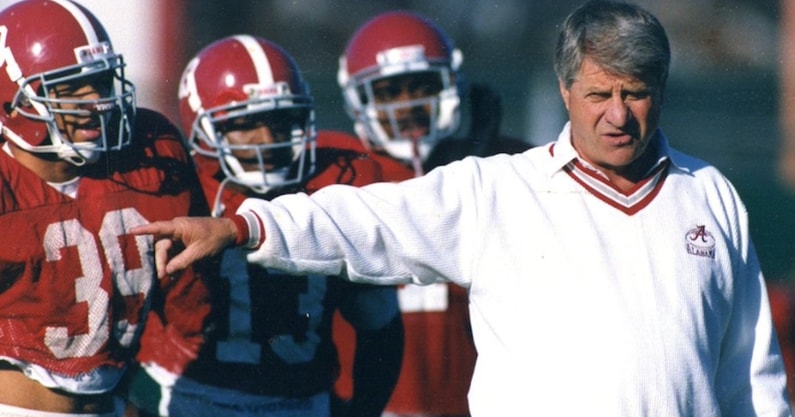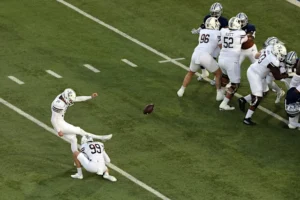
Bill “Brother” Oliver, a revered figure in Alabama football history and one of the South’s most respected defensive minds, passed away on April 14, 2025, at the age of 85. His legacy spans decades as a player and coach, leaving an indelible mark on college football.
Early Life and Playing Career
Born on November 1, 1939, in Epes, Alabama, Oliver was a standout defensive back for the University of Alabama under legendary coach Paul “Bear” Bryant. He played for the Crimson Tide from 1959 to 1961, culminating in a national championship in his senior year. Oliver’s playing career laid the foundation for his future as a coach, where he would become known for his defensive acumen and leadership.
Coaching Career
Auburn University (1966–1970)
Oliver began his coaching career at Auburn University in 1966 as the secondary coach under head coach Ralph Jordan. During his tenure, Auburn’s defensive backfield became one of the nation’s best, producing consensus All-Americans like Buddy McClinton and Larry Willingham. Oliver’s work at Auburn established his reputation as a top-tier defensive coach.
University of Alabama (1971–1979)
In 1971, Oliver returned to Alabama as the secondary coach, where he served until 1979. During this period, Alabama’s defense was consistently among the nation’s best, contributing to the team’s dominance in college football. Oliver’s coaching helped develop numerous players who went on to successful careers in the NFL.
University of Tennessee at Chattanooga (1980–1983)
Oliver took on his first head coaching role at the University of Tennessee at Chattanooga from 1980 to 1983. He compiled a 29–14–1 record, leading the Mocs to competitive seasons in the Southern Conference. His success at Chattanooga demonstrated his capabilities as a head coach and further solidified his coaching credentials.
Memphis Showboats (1984–1985)
In the mid-1980s, Oliver served as the defensive coordinator for the Memphis Showboats in the United States Football League (USFL). His defensive strategies were instrumental in the team’s performance during his tenure.
Clemson University (1986–1989)
Oliver continued his coaching career at Clemson University, where he served as the defensive backs coach from 1986 to 1988 and as the defensive coordinator in 1989. His leadership contributed to Clemson’s strong defensive units during this period.
Return to Alabama (1990–1995)
In 1990, Oliver returned to Alabama under head coach Gene Stallings as the secondary coach. He was promoted to defensive coordinator in 1993, where he orchestrated one of the most dominant defenses in college football history. The 1992 Alabama defense, under Oliver’s guidance, allowed just 55 rushing yards per game, 139 passing yards per game, and 9.2 points per game, all ranking No. 1 nationally. This defense played a pivotal role in Alabama’s 34–13 Sugar Bowl victory over Miami, securing the national championship.
Auburn University (1996–1998)
After leaving Alabama, Oliver served as Auburn’s defensive coordinator from 1996 to 1998. Following the resignation of head coach Terry Bowden, Oliver was appointed interim head coach for the final five games of the 1998 season, compiling a 2–3 record. Although considered a candidate for the permanent head coaching position, Auburn hired Tommy Tuberville, leading Oliver to retire from coaching.
Legacy and Honors
Throughout his career, Oliver was known for his defensive expertise, leadership, and the development of players who excelled both on the field and in their professional careers. In 2013, he was inducted into the Alabama Sports Hall of Fame, recognizing his significant contributions to the sport.
Personal Life
Outside of football, Oliver was known for his humility, dedication to his players, and commitment to the communities he served. His influence extended beyond the gridiron, as he mentored countless young athletes and coaches throughout his life.
Bill “Brother” Oliver’s passing marks the end of an era in college football. His contributions to the sport, particularly in developing elite defenses and mentoring young athletes, have left an enduring legacy. As a player, coach, and mentor, Oliver exemplified the values of discipline, excellence, and integrity, making him a cherished figure in the annals of college football history.





